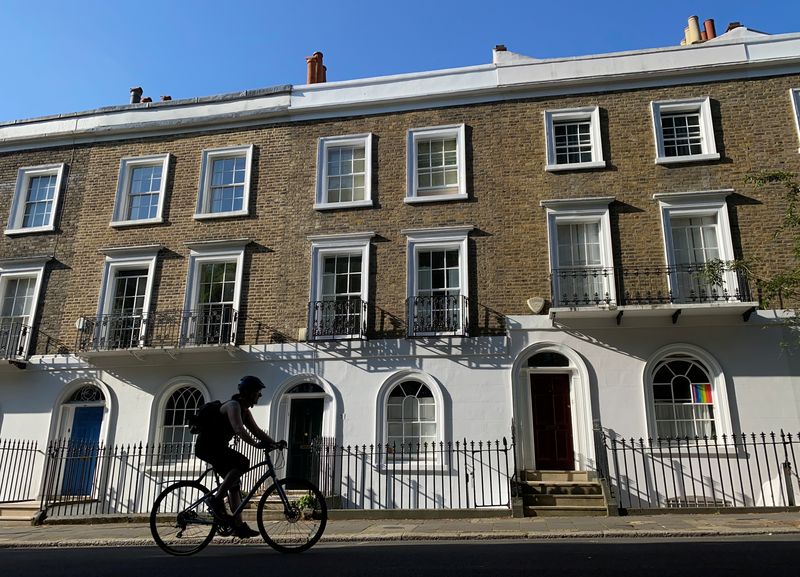By David Milliken
LONDON (Reuters) - British lenders approved the fewest new mortgages in six months in August, figures showed on Friday, in a further sign of the slowdown in the property market as mortgage interest rates rise, but borrowing by consumers gathered some steam.
Bank of England data showed banks and building societies approved 45,354 mortgages for house purchase in August, down from 49,532 in July and broadly in line with economists' expectations in a Reuters poll.
The number of properties which were re-mortgaged fell to the lowest since July 2012, as existing homeowners sought to avoid locking in current high interest rates.
"Simply put, buyers and homeowners alike are happy to play the waiting game in the hope of getting a better deal," said Myron Jobson, senior personal finance analyst at brokers Interactive Investor.
During August, the average interest rate paid on a new mortgage rose by 0.16 percentage points to 4.82%, the highest in records dating back to 2016, the BoE said.
Net mortgage lending - which typically lags behind approvals by around a month - was the highest since January at 1.218 billion pounds ($1.49 billion), after an unusually weak 201 million-pound increase in July.
Net unsecured lending to consumers jumped by 1.644 billion pounds from the previous month after a 1.271 billion-pound rise in July, beating all forecasts in the Reuters poll.
The annual growth rate in unsecured borrowing increased to 7.6% in August from 7.3%, rising to its highest since April.
The BoE data also showed savers moving money from instant access accounts to those with longer-term fixed rates, to lock in higher interest rates, and a small net withdrawal from banks and building societies.
The increased consumer borrowing and net bank withdrawals potentially show households being squeezed by the high cost of living, although the withdrawals could also reflect money being transferred to higher-yielding investments.
Britain's housing market has been slowing for a year now, since bond market turmoil triggered by then-Prime Minister Liz Truss' September 2022 "mini-budget" led to a brief freeze in mortgage lending.
A more lasting impact has come from rising BoE interest rates, which have pushed up mortgage costs.
Mortgage lender Halifax said this month that house prices in August were 4.6% lower than a year earlier, the sharpest drop in 14 years.
However, a survey from property website Zoopla showed a tentative rise in potential buyers during September as mortgage rates appeared to have peaked.

Last week the BoE kept interest rates unchanged at their 15-year high of 5.25%, after 14 consecutive rises.
($1 = 0.8173 pounds)